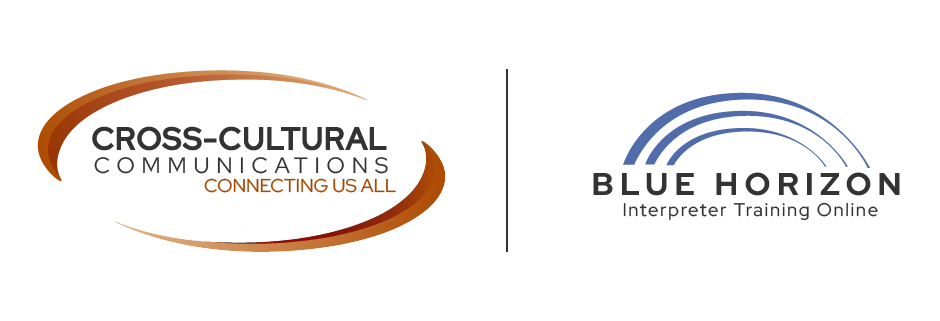Interpreting for Forensic Evaluations Using a Trauma-Informed Approach - November 2024
Register by October 26, 2024 to receive $30 off!
Forensic evaluations are used in many contexts including healthcare settings, legal criminal proceedings, asylum applications, and immigration hearings. A successful forensic evaluation often requires the interviewee to detail uncomfortable and upsetting information about their lives.
This workshop will take place live via Zoom November 23, 2024 from 12:00 - 5:00 p.m. ET (9:00 a.m. - 2:00 p.m. PT)
After purchase, course information and access will be available on your "My eLearning" page.

Interpreting for Forensic Evaluations Using a Trauma-Informed Approach - November 2024
Forensic evaluations are used in healthcare settings, legal criminal proceedings, asylum applications, and immigration hearings, among many other settings. A successful forensic evaluation often requires the interviewee to detail uncomfortable and upsetting information. In this workshop, participants will learn from a physician and a certified medical interpreter about the format, flow, and questions contained in a typical forensic evaluation. They will also learn best practices for conducting the interview in collaboration with everyone in the encounter. We will discuss ways to modify the pre-session, the importance of establishing rapport, preparation strategies for lexical challenges, strategies to control one’s own emotions, managing vicarious trauma, and collaborating with clients using a trauma-informed approach.
We will review the National Council for Interpreters in Healthcare (NCIHC) guidelines for advocacy and we will brainstorm mock scenarios. The workshop will include one hour of practice in which attendees will work on realistic scenarios the trainers have identified as particularly difficult. We will also allow everyone to practice an adapted pre-session for creating a comfortable climate for the interviewee. Finally, we will conclude with a discussion of additional training resources and ways to get involved in forensic evaluations for asylum cases.
Instructor: Robin Ragan, PhD & Jordan Greenbaum, MD
Class Schedule: November 23, 2024
Timetable: 12:00 - 5:00 p.m. ET (9:00 a.m. - 2:00 p.m. PT) with an hour break from 2 to 3 p.m. ET (11:00 - 12:00 p.m. PT)
CEUs:
-
Certification Commission for Healthcare Interpreters (CCHI): 4 CE hours
-
International Medical Interpreters Association: 0.4 IMIA/NBCMI CEUs
-
American Translators Association: 4 ATA CEPs
-
Registry of Interpreters for the Deaf: 0.4 RID CEUs
-
Washington State Department of Social and Health Services: 4.0 DSHS General Credits
-
Ontario Council on Community Interpreting: 4 OCCI PDUs - Pending for approval
Learning Objectives:
- Describe the format and purpose of forensic medical and mental health evaluations.
- Summarize key strategies of the trauma-informed approach and how an interpreter can employ these strategies during a forensic evaluation.
- Name common challenges for interpreters during a forensic evaluation.
- Describe coping strategies for the interpreter to manage vicarious trauma.
Target audience: Healthcare Interpreters and Community Interpreters.
Technical Requirements:
- Desktop or laptop computer (recommend i5 processor or above) with webcam (The course may not be taken on a tablet, phone or other small device.)
- Zoom (Updated Version)
- Chrome or Firefox (Updated Version)
- Quality headset with boom mounted microphone
- High speed internet (minimum 5 mbps upload/10 download)
- Ethernet cable (Must connect computer directly to router. Minimum quality CAT6)*
- Ethernet to USB adapter (if needed)*
- External Monitor*
*Recommended but not required.
This course is limited to 25 participants. Once the course has reached capacity, those interested will be added to a waitlist in the order in which their inquiry is received.
In order to receive a course completion certificate, participants in our live online programs must submit all applicable documentation; complete all coursework requirements; be visible on their webcam for the entire program; and complete the applicable attendance requirement:
- For live online programs shorter than 10 hours, participants must attend all live scheduled hours.
- For live online programs 10 hours or longer, participants may miss no more than 10% of the total live scheduled hours. (For example, attendance of 18 hours is required for a 20-hour program; attendance of 36 hours is required for a 40-hour program.)
In order to uphold the collaborative nature of our online training programs, onboardings, support sessions and webinars, Cross-Cultural Communications reserves the right to remove any participant for abusive or aggressive behavior, spoken or written, towards CCC staff, trainers or other participants. We recognize that the past few years have been difficult for everyone. However, our participants, trainers and staff have the right to a safe and respectful learning and working environment. We thank you for your understanding.
Training Participant Information Release
By registering for our live online training programs, you agree to allow Cross-Cultural Communications, LLC to share your contact information with participants in the same training session for purposes of creating a collaborative online training experience for all participants. Should you have concerns or not wish to have your contact information shared by CCC, prior to the training session please email info@cultureandlanguage.net.
Cross-Cultural Communications records its live online training sessions for quality control purposes. Recordings are not shared with anyone outside of the organization or training session.
Visit our Terms of Use for our training policies and procedures, including our refund policies.

